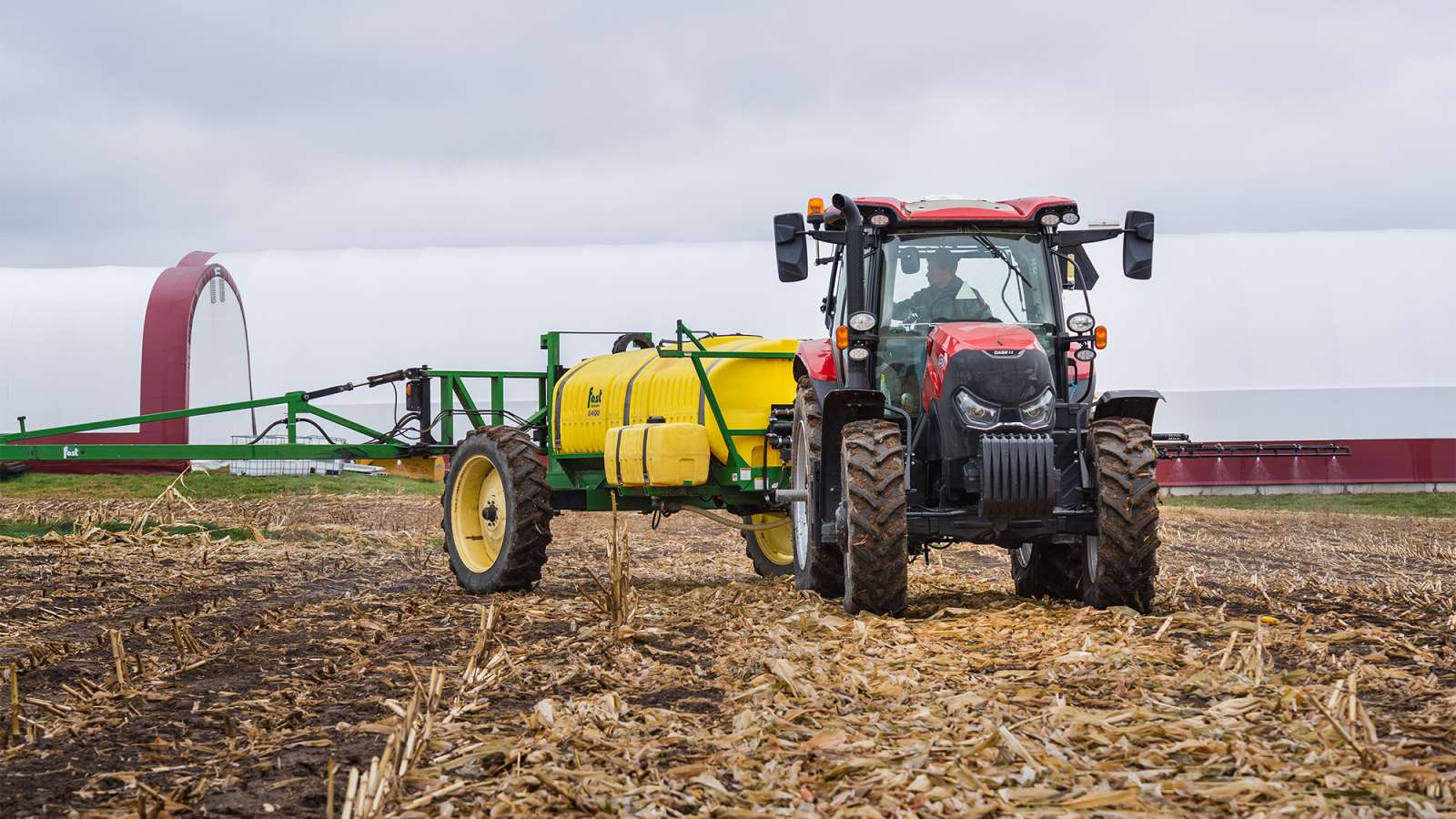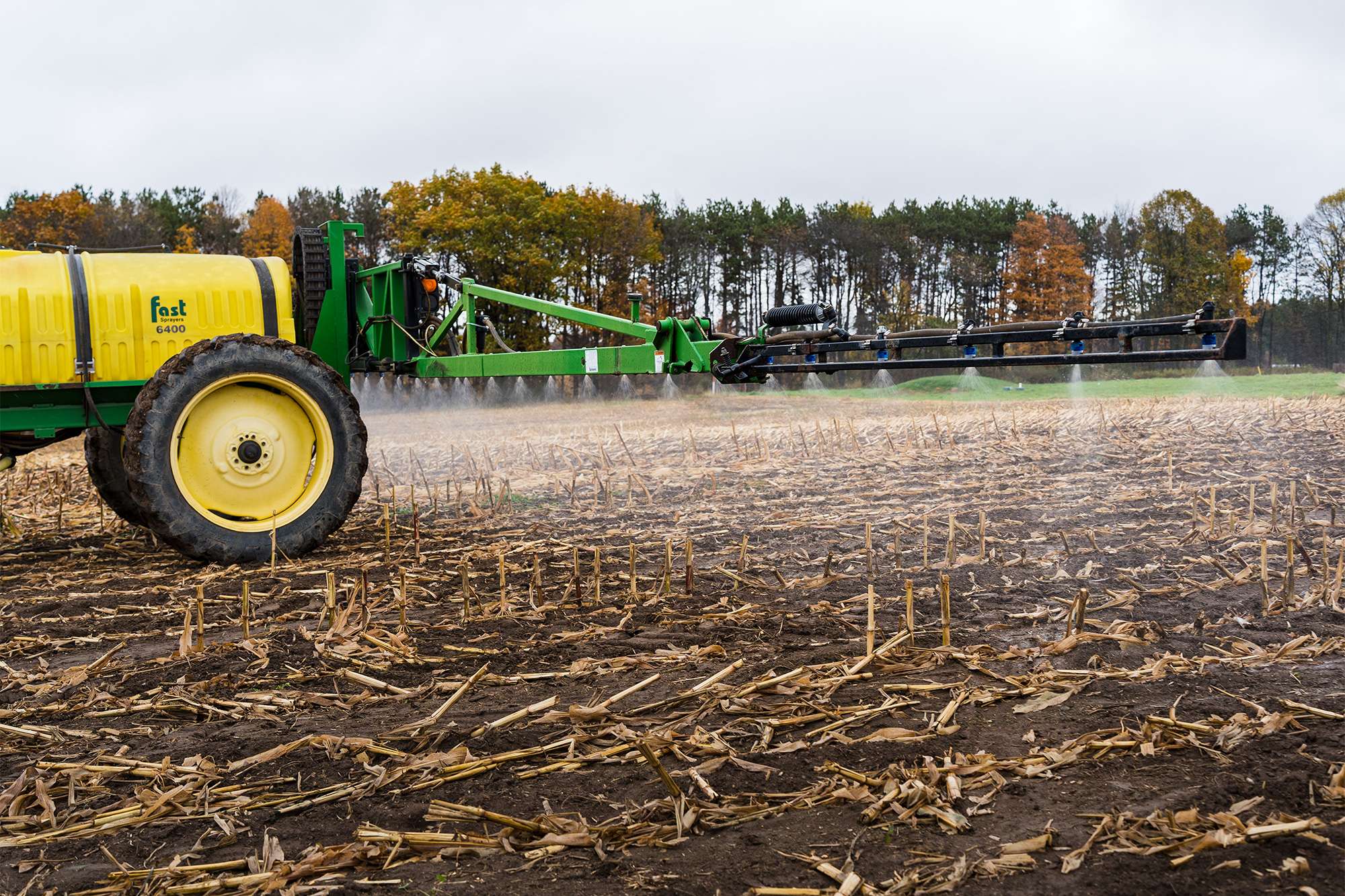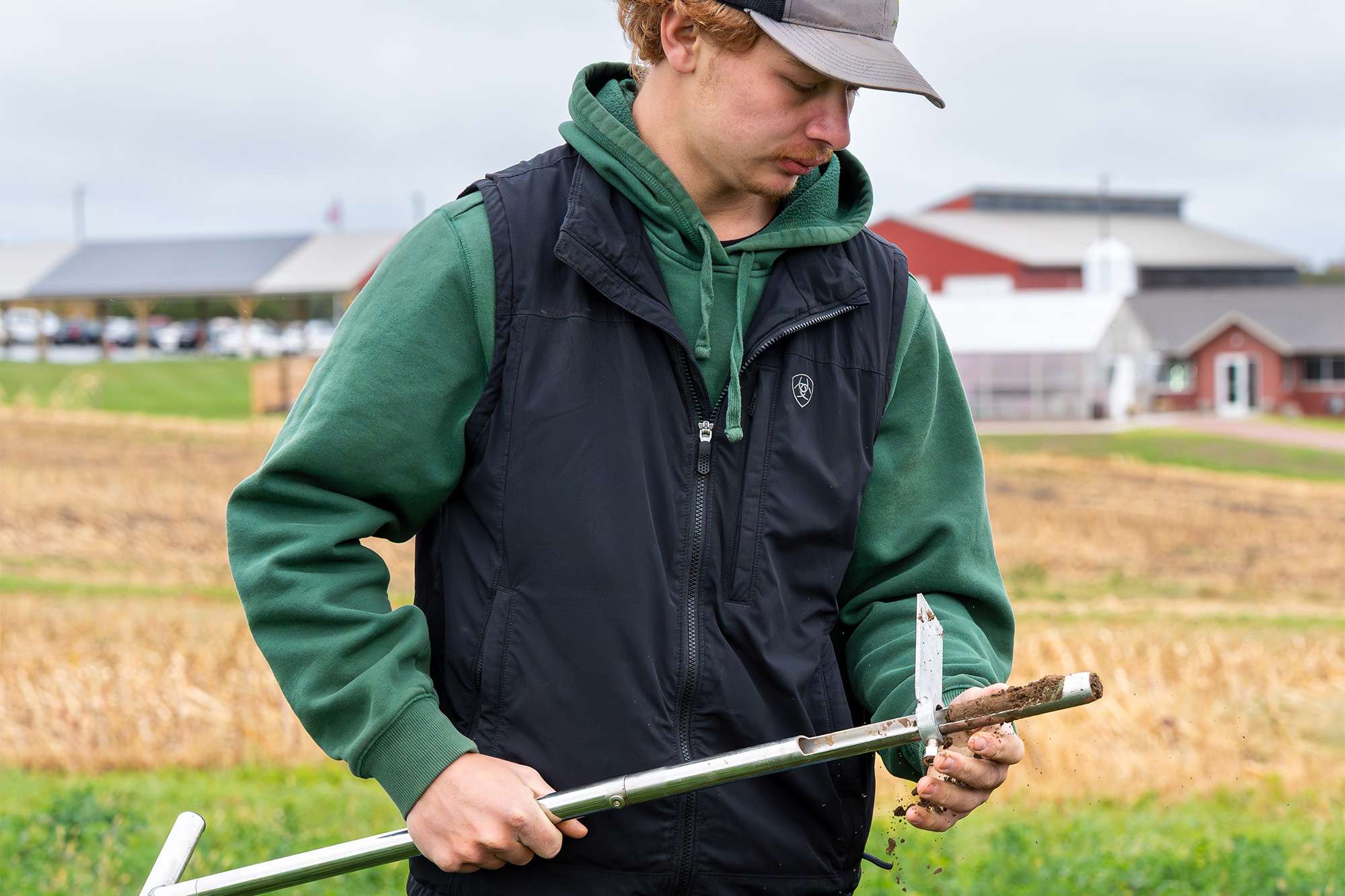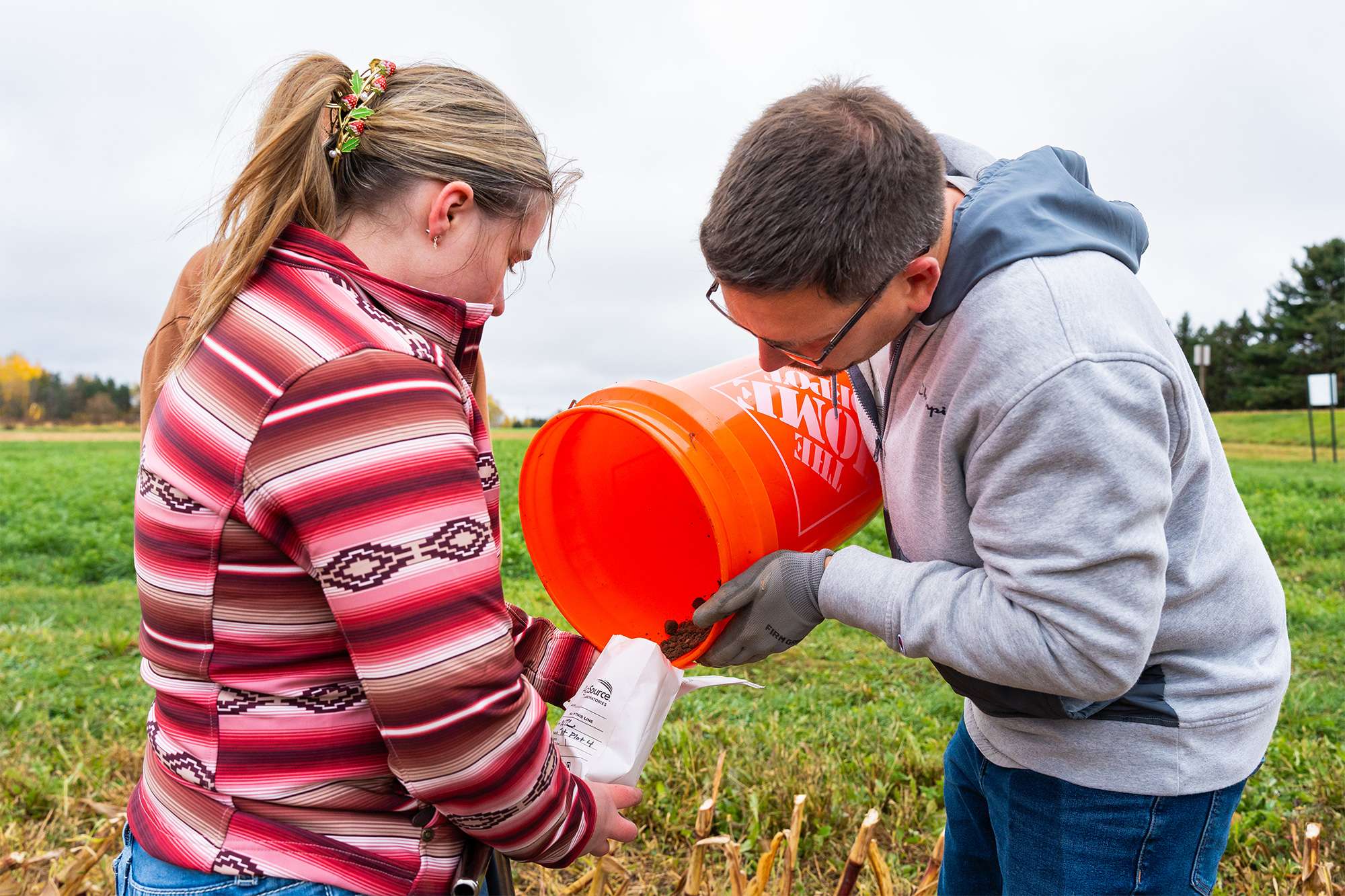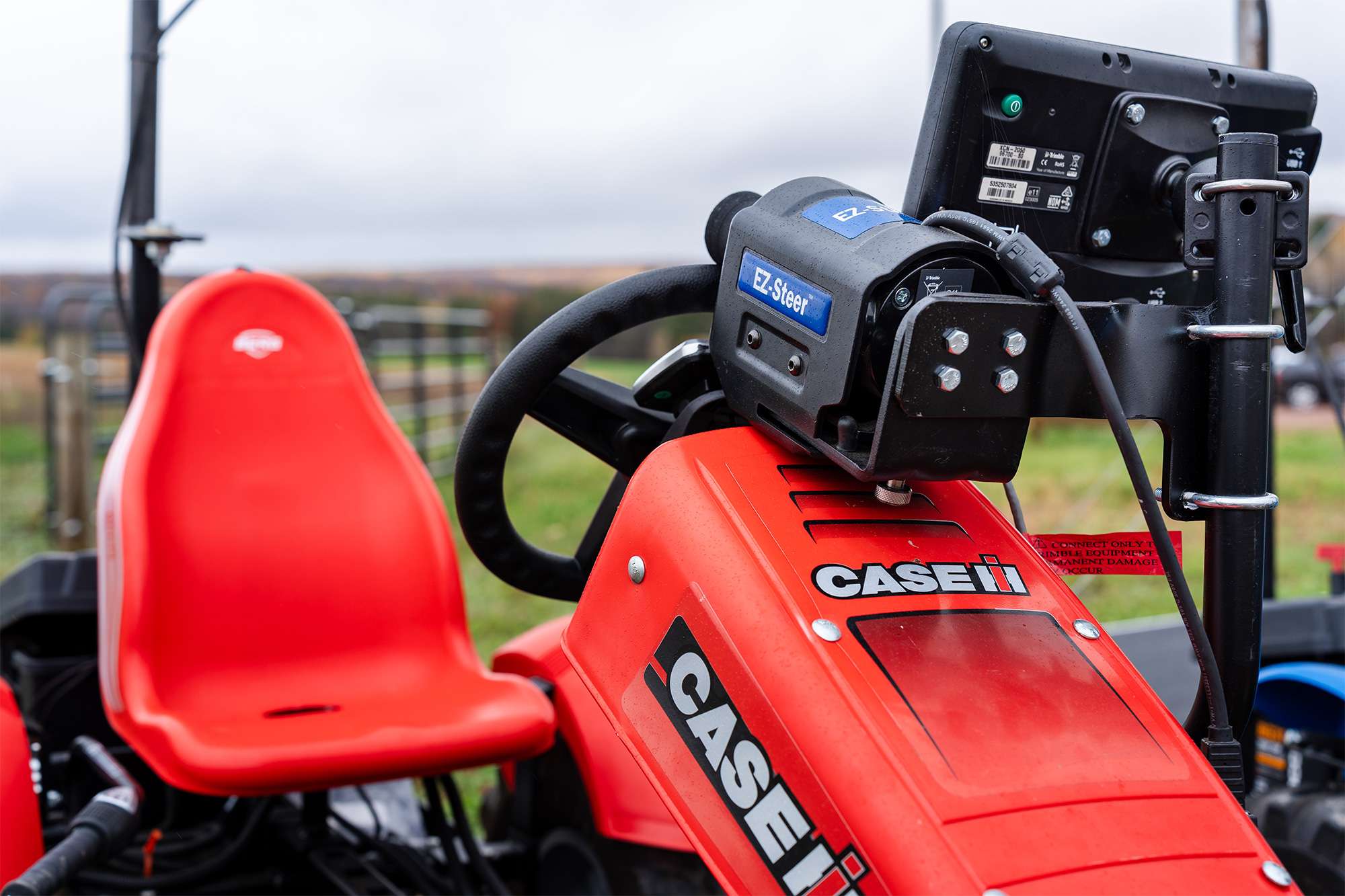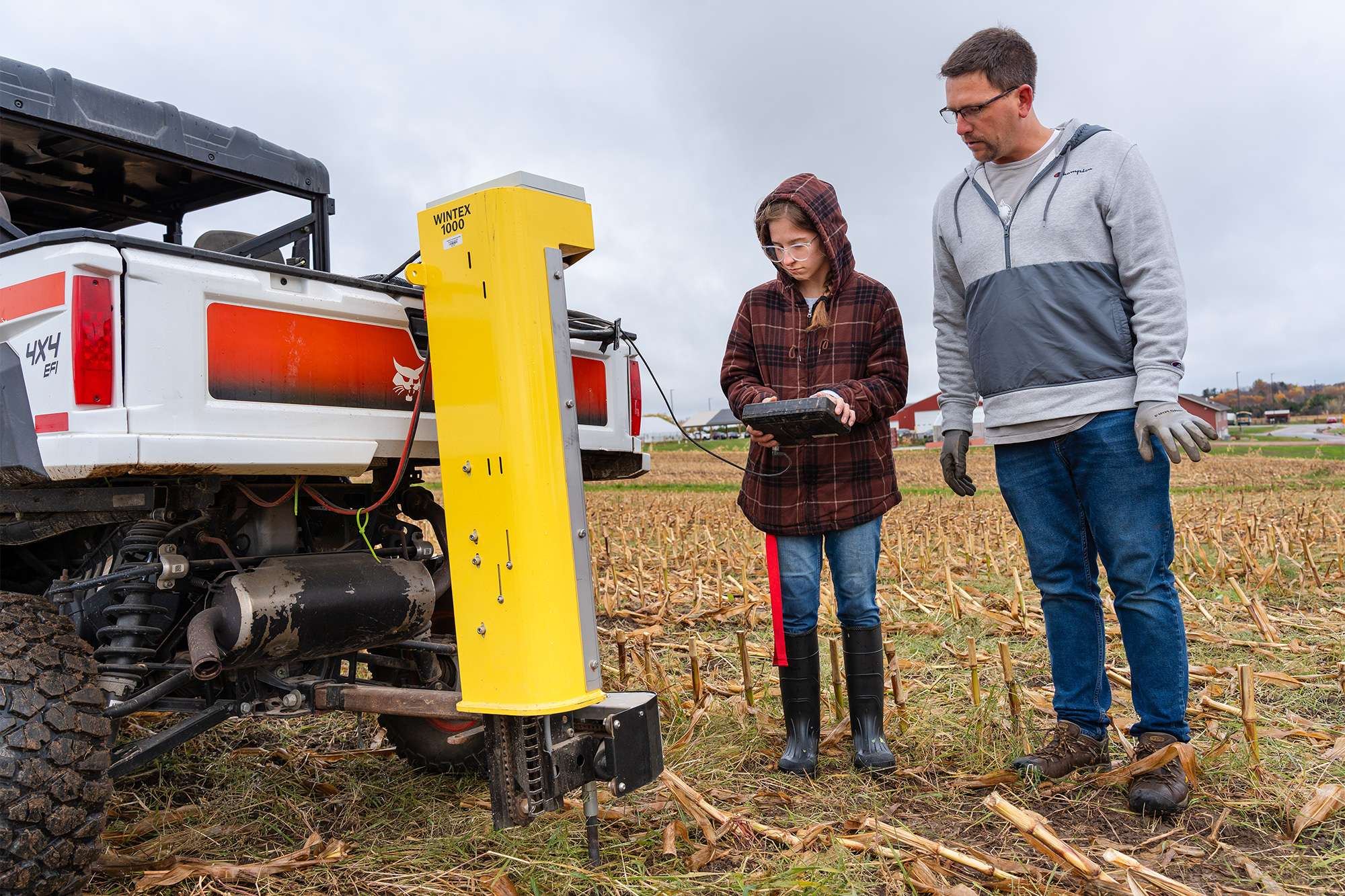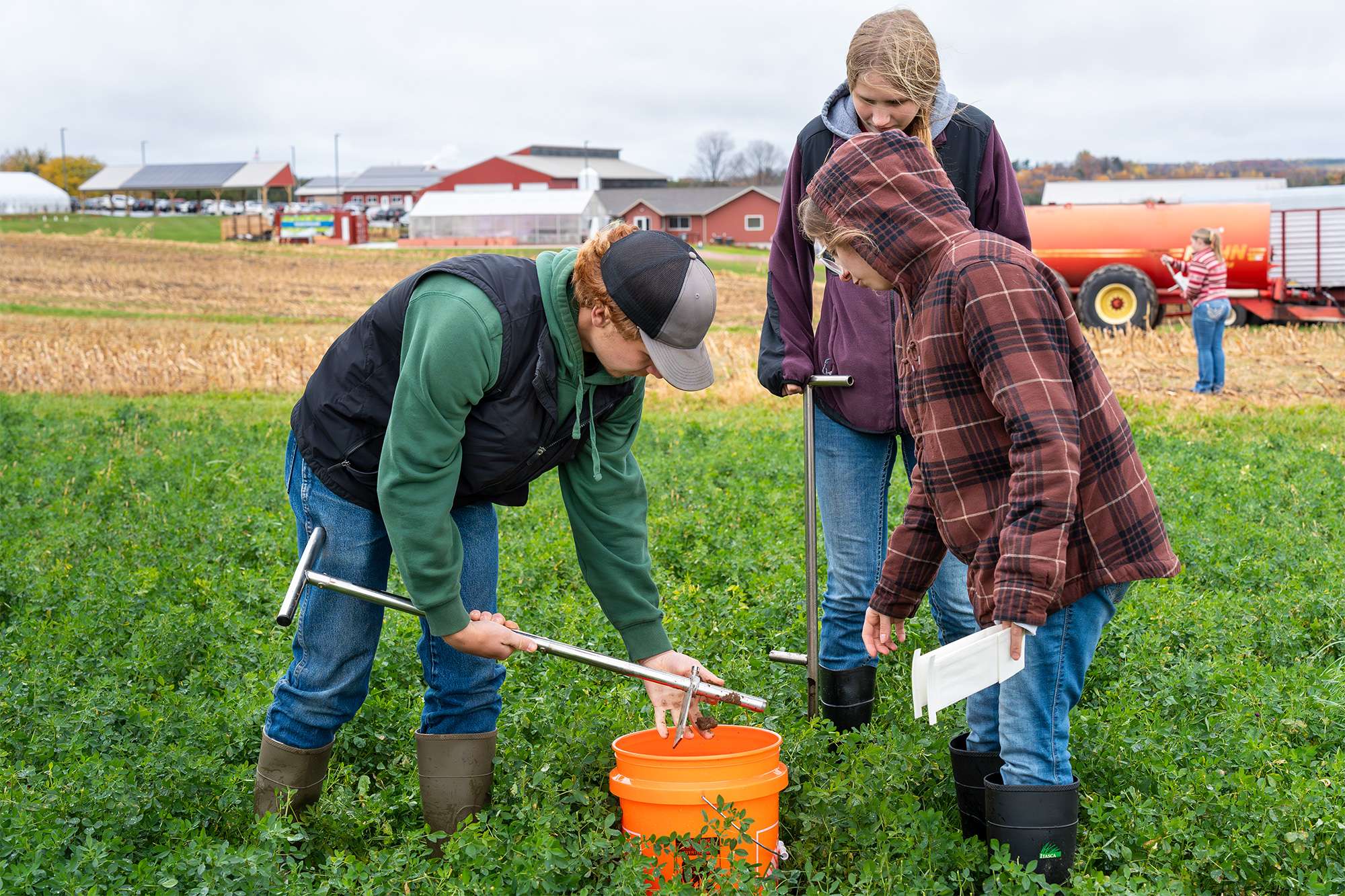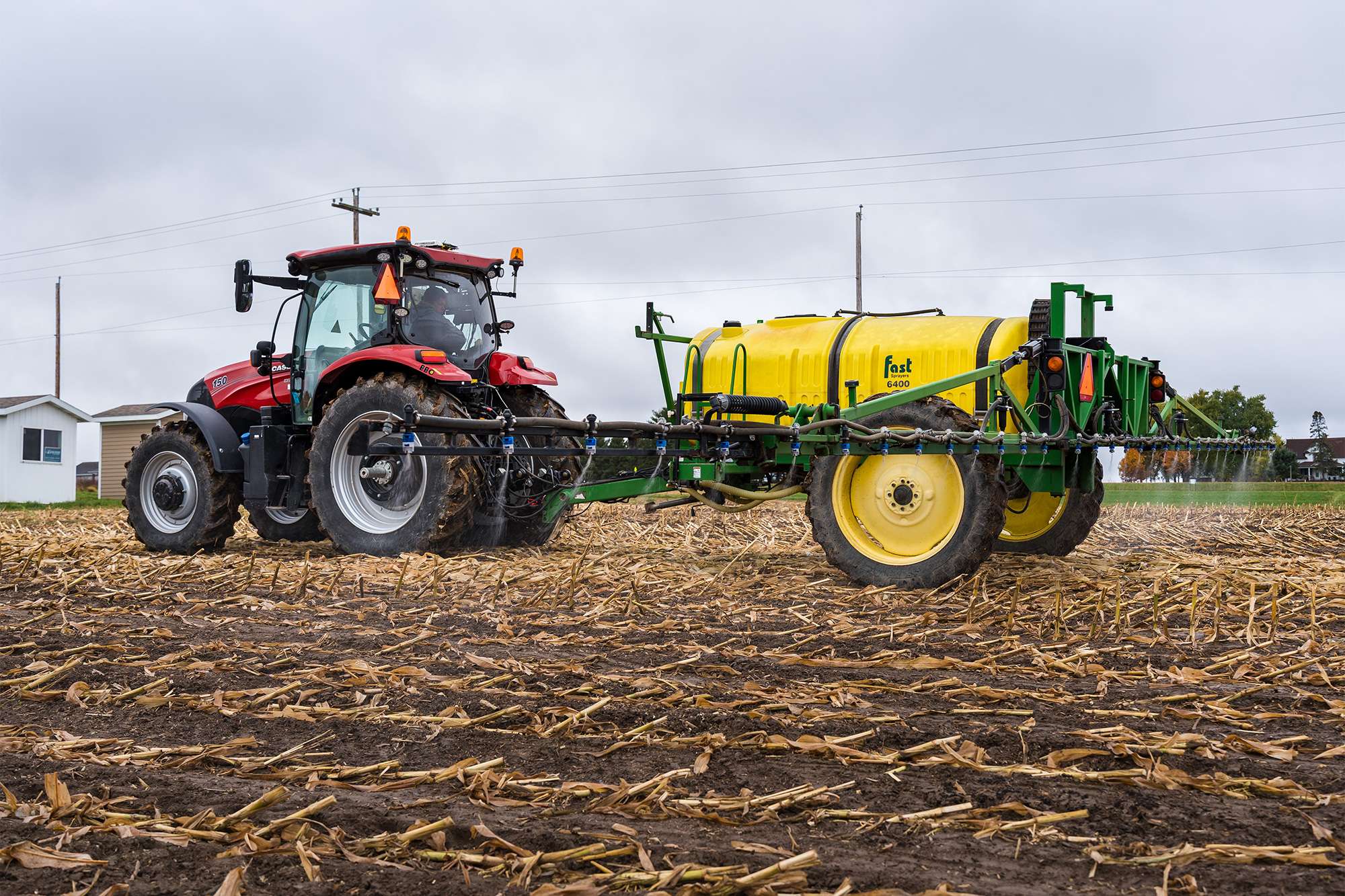Agronomy
65 Credit Associate DegreeProgram Description
The Agronomy Associate Degree program focuses on the principles and practices of crop production and field management. Production management centers on the science of strategically managing land, water, plants, labor and other inputs, such as seeds, nutrients, pesticides and precision agriculture technologies to produce food and fiber in a sustainable and profitable manner. Practical hands-on learning opportunities are infused with theory throughout the program.
Studies include the four major categories of crop management: soil and crop management, pest management, nutrient management and water management. Learners will actively manage cropland acres and complete an internship work experience. Jobs in this area are generally physical and require the strength to lift and carry 50 pounds. Learners interested in this career should have a valid driver’s license to operate equipment, above average computer skills and possess good oral, reading and writing skills. In addition, professionals in this area tend to spend a great deal of their time working outdoors.
Found in These Career Fields:
Approximate Program Cost
Books & Supplies: $875
Starting Salary
Financial Aid
Media from the Agronomy Program
Detailed Program Information
Availability
Courses for this program may be available at a variety of campus locations through multiple modes of delivery if you meet the admission requirements and prerequisites.
* Campus and online availability of courses and programs may be subject to change.
Outcomes
Graduates will be able to…
Careers
Some of the potential careers graduates can pursue are:
Courses
The Agronomy Associate Degree is a 65 Credit program. The following is a typical semester breakdown of the courses within the program.
Credit for Prior Learning Available
* College 101 (10-890-165) is not part of the program credit requirements but is a College Requirement for graduation that must be passed with a “C” or better.
View All Detailed Course Information
Artificial Intelligence (AI)
We are now integrating artificial intelligence into every academic discipline, ensuring students are prepared for the evolving demands of their industries.
Learn more about Our Commitment to AI Integration
Pathways
Pathways at NTC are designed to help you progress toward your career and education goals, one step at a time. Many programs are structured to build upon each other, allowing you to earn valuable credentials along the way.
If you begin with one of the following programs, you will earn credit towards this Agronomy Associate Degree:
The Agronomy Technician Technical Diploma will provide you with 46% (30 of 65 credits) of the total credits in this Agronomy Associate Degree
Transfer Information
All associate degrees transfer to a variety of programs at other partner colleges to give you the opportunity to continue your education in other areas of study.
View all transfer guides
Cost of Attendance
2025–2026 Estimated Academic Year Budgeted Cost of Attendance
The estimated Cost of Attendance (COA) is a budget that includes categories of expenses that a student can expect to incur while attending college. The COA does not reflect actual charges. It is an average based on the estimated living costs typical of our region. In determining the cost of attendance, Northcentral Technical College uses the budget established by the Wisconsin Technical College System (WTCS) Financial Aid Budget Work Group. This budget is used to determine financial need for all students who apply for financial aid. A student’s cost of attendance is composed of all educational expenses that can be included for financial aid purposes that a student may accrue while pursuing their education for the year (or semester, if enrolled less than a year). A student’s financial aid cannot exceed their cost of attendance. Schools are required to provide a fuller picture of what it may cost students to pursue their degree, not just what they will owe in tuition/fees and books/supplies.
| Expenses | Student Living With Parents (Home) | Student Living on Own (Other) | ||
|---|---|---|---|---|
| Full-time Tuition (based on a total of 30 credits, 15 credits fall and 15 credits spring) |
|
|
|
|
| Living Expenses (Housing & Food) | $3,182 | $10,305 | ||
| Books / Supplies | $1,463 | $1,463 | ||
| Transportation | $4,103 | $4,103 | ||
| Personal Expenses | $3,065 | $3,065 | ||
| Loan Fees | $85 | $85 | ||
| Total Estimated Cost Of Attendance |
|
|
|
|
* Tuition listed is based on approved rates for the 2025–2026 academic year. Rates are approved each March by the Wisconsin Technical College System Board and estimated budgets are updated at that time.
For the 2025–2026 academic year, the Wisconsin Resident tuition rate is $152.85 per credit plus a minimum $5.00 material fee and $13.44 per credit activity fee. Out-of-State resident tuition is $229.28 per credit plus a minimum $5.00 material fee and $13.44 per credit activity fee.
Students awarded Federal Direct Loan(s) also have an average of the mandatory loan fees automatically added to their COA.
Students with disability-related expenses may contact the Financial Aid Office to have their additional expenses considered. Disability-related expenses include but are not limited to: personal assistance, equipment, and supplies. The Financial Aid Office may potentially include disability expenses in the COA that are not provided by other assisting agencies.
NTC also offers a Net Price Calculator to help estimate costs.
For more information regarding billed tuition and fees visit https://www.ntc.edu/admissions/tuition-fees
We’re happy to answer any questions you may have about how the financial aid process works. Please feel free to reach out for more information.
-
NTC Financial Aid Office
- 715.803.1647
- financialaid@ntc.edu
Admissions Process
Our application process takes just a few minutes to complete, but we want to make sure you have the things you’ll need on hand to complete the application. We’re here to help if you have any questions while submitting your application.
Before you apply, you should know
The majority of the courses in this program take place at NTC’s Agriculture Center of Excellence, located at 6625 County Road K, Wausau, WI.
Fill out our application
The application can be submitted online and takes just a few minutes to complete. There is no fee to apply.
Apply NowWhat’s Next?
We’ll review your application and let you know if we need anything else. If you’re all set, your acceptance letter will be emailed to you.
